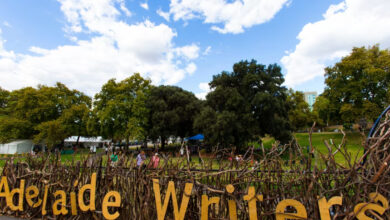
The citizenship crisis engulfing Australian Prime Minister Malcolm Turnbull’s government deepened on Tuesday as an eighth lawmaker exited parliament and the main opposition party drafted in a high-profile candidate for a key by-election.
Turnbull’s center-right government has already lost its majority in parliament, accounting for four of the eight lawmakers to be forced out or to resign from parliament in recent weeks because they were dual citizens. That status is banned under the Australian constitution to prevent split allegiances.
Adherence to that rule in a country where more than half the population of 24 million was either born overseas or has a parent who was born overseas has only come under the spotlight in the current crisis, with the High Court confirming a strict interpretation of the law.
Jacqui Lambie, an independent and outspoken senator for the island state of Tasmania, confirmed on Tuesday that she was the eighth lawmaker in a parliament of 226 to fall foul of the dual citizenship law, with political analysts warning that several more are likely to fall.
The opposition Labor Party upped the stakes on Tuesday by announcing it was putting forward former state premier Kristina Keneally to contest the seat vacated by a lawmaker in Turnbull’s Liberal Party.
The by-election in the inner Sydney seat of Bennelong, along with another one for the seat of former Deputy Prime Minister Barnaby Joyce, who was ejected by last month’s High Court ruling, will be key to restoring Turnbull’s small majority in parliament.
“This is a chance which I think a lot of people in Australia would like to have that has fallen to the people of Bennelong to send a message against the dysfunction and the chaos of the current government, the policy paralysis, the failure of leadership,” Labor leader Bill Shorten told reporters on Tuesday.
While Joyce is widely expected to win back his safe rural seat after renouncing his New Zealand citizenship, the entry of the popular Keneally into the Sydney race has made that contest far less certain. Previously a safe conservative seat, it fell to the Labor Party in 2007, before the conservatives won it back in 2010.
“Elections are notoriously volatile, anything is possible,” Nicholas Economou, a political scientist at Monash University, told Reuters. “Voters often use by-elections to give a stinging rebuke to a government that’s at war with itself and that’s what this government is. It’s game on in Bennelong.”
TURNBULL IN TROUBLE
The citizenship crisis has hit Turnbull hard, with a poll released on Monday showing he had slipped to a new low in voter popularity amid criticism that he has failed to act decisively.
Independent lawmakers have threatened to use their new-found power in the lower house to push through controversial legislation that has been blocked by the government, including a Royal Commission into the banking sector.
The government and main opposition party cobbled together a deal on Monday to agree to a deadline of Dec. 1 for all politicians to disclose the birthplace of their parents and grandparents.
Lambie vowed to immediately renounce her UK citizenship, granted by descent courtesy of her Scottish-born father.
“I won’t be laying down, I’ll just get up and get back on and go again, simple as that,” she told local radio.
Lambie, 43, a former army corporal, has become one of Australia’s most recognizable and colorful politicians in her short time in office. She has garnered headlines for a range of controversial comments, including her belief that China could invade Australia and applauding Russian President Vladimir Putin’s “very strong leadership”.




